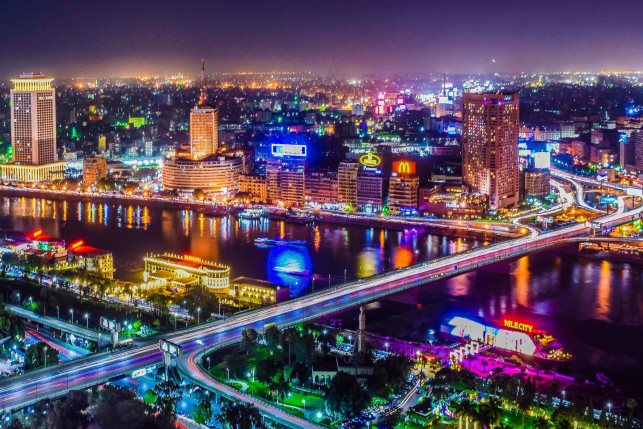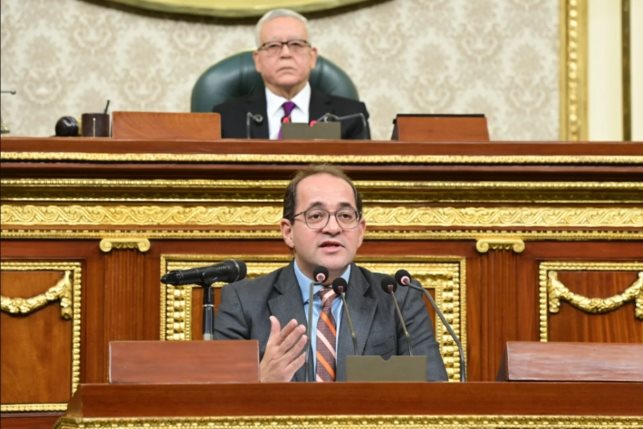Egypt highlights Africa's efforts in attracting climate financing at IMF panel
Egypt aims to become a regional hub for technology and innovation under Vision 2030 plan.
 Minister of International Cooperation Rania Al-Mashat — File Photo
Minister of International Cooperation Rania Al-Mashat — File Photo
Egypt's Minister of International Cooperation and the country's representative to the World Bank, Dr. Rania Al-Mashat, participated in a panel discussion organized by the International Monetary Fund (IMF) on "Energy Security and Climate Financing" as part of her attendance at the 2023 Spring Meetings of the World Bank and the International Monetary Fund in Washington, D.C.
The discussion was also attended by IMF Deputy Managing Director Tao Zhang, Tim Gould of the International Energy Agency, Kampeta Sayinzoga, CEO of the Development Bank of Rwanda, and Daniel Yergin, Vice Chairman of IHS Markit. The session was moderated by Michelle Fleury of the BBC.
During the panel, Minister Al-Mashat emphasized that Egypt hosted and chaired the COP27 climate conference, whose main goal was to transition from climate commitments to implementation, given the ongoing discussion about the commitments made by developed countries to developing and emerging countries, which have not yet been fulfilled and amount to $100 billion annually.
She explained that the conference worked on translating these commitments into actionable projects to incentivize climate action and support sustainable development efforts.
Minister Al-Mashat also explained that developing countries are often accused of not being ready to receive climate finance and lacking clear and well-formulated projects to attract private sector investments. Therefore, the conference shed light on the efforts of the African continent through its national strategies and specific contributions to attract climate financing.
She emphasized that every party involved has a clear and defined role to play in promoting climate financing, whether it be governments, the private sector, development partners, or non-profit organizations with huge resources that can represent an incentive for climate ambitions and attract the private sector.
The Paris Agreement, she added, provides a platform for countries to work together to combat climate change and promote sustainable development.
Egypt has been actively working on digitalizing its services to better accommodate investors and enhance economic growth. As part of its Vision 2030 plan, the country is striving to become a regional hub for technology and innovation.
She also highlighted Egypt’s launch of a national platform for green projects under the "Nawafi" program linking water, food, and energy sectors to contribute to the country's efforts in green transformation. The platform aims to mobilize different funding mechanisms and private sector investments, along with debt swaps for climate action, to support Egypt's transition to a green economy under the National Climate Change Strategy.
Egypt's "Sharm El-Sheikh Guide to Climate Finance" outlines 12 fundamental principles as a framework for guiding related parties towards adopting innovative climate finance mechanisms and identifying key recommendations and a feasible agenda to define each party's role in achieving fair financing. The guide also helps bridge the information gap by providing a map of climate finance providers, their risk acceptance, regional and sectoral focus, and financing tools.
To translate commitments into feasible projects, Egypt has created a practical guide and model for African countries based on key principles, including state ownership and reliance on national priorities and strategies, clarity, commitment, and transparency.
The country has transformed thermal power plants into renewable energy ones, with wind projects of 10 GW replacing thermal power plants of 5 MW in capacity under the Sustainable Energy National Strategy. The aim is to move towards clean energy, saving about 5.25 million tons of CO2 emissions annually.
For enabling countries to fulfill their commitments, the ownership of their national plans and alignment of priorities with global objectives are essential, along with transparency and clarity in crafting projects, according to the report. Egypt has recently signed the first private sector-led projects in collaboration with development partners.





